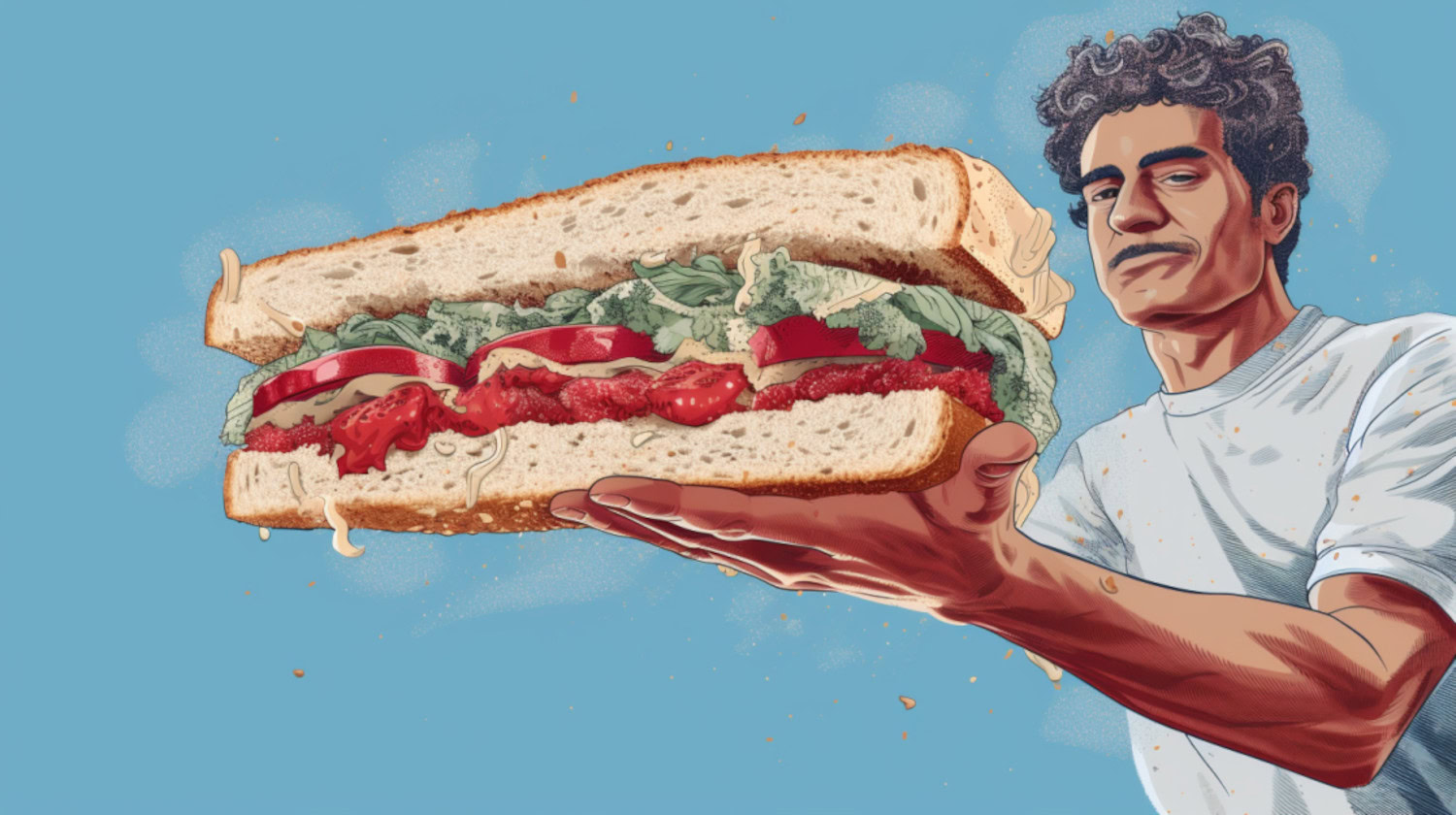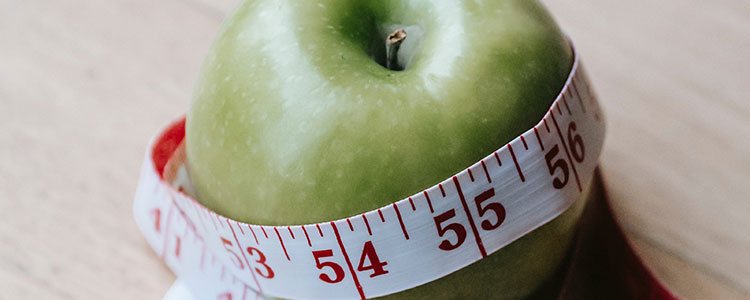Key Takeaways
- Some assume cannabis causes “the munchies” and is associated with weight gain. But that’s not always true.
- The connection between cannabis and hunger is complex.
- While cannabis may increase appetite, there’s also evidence that cannabis users are less likely to be obese.
Cannabis use has a clear impact as an appetite stimulant, as it has received decades of recognition for increasing hunger and causing ‘the munchies.’ Many strains have been known to boost appetites, helping individuals with various symptoms like nausea and reduced appetite.
But does cannabis have the ability to increase hunger, cause unhealthy snacking, and make you fat?
Can Weed Make You Fat? The Truth Behind the Myth
While some feel that cannabis consumption will lead to weight gain, that is an oversimplification of a deeply nuanced and ongoing researched subject.
Some believe that cannabis leads to weight gain via a number of common effects. Most notably, cannabis' propensity for stimulating appetites, known as ‘the munchies.
The belief is that cannabis consumers often overindulge in food and beverages, often of the unhealthy variety, and then pack on the pounds due to couch lock and a lack of activity.
While this is the outcome for some individuals, many people gain weight even if they don't consume cannabis. Conversely, scores of healthy living cannabis consumers prove that this correlation is far from factual.1
While cannabis use may lead to weight gain, many factors beyond the plant also play a crucial role.
The effects of cannabis’ various compounds are felt through their interaction with the body’s endocannabinoid system. Also known as the ECS, this complex system of receptors throughout the body regulates numerous essential body functions. ECS receptors in the brain and gut influence food intake, metabolism, and energy balance.2
One of the plant's most known compounds is THC, which can help with appetite stimulation. Medical cannabis consumers have long relied on this effect when their medical conditions or treatments deprive them of feelings of hunger.
THC has been linked to increased ghrelin levels. Ghrelin is often called the "hunger hormone," as it stimulates appetite and increases food intake.
Studies have found mixed results at times. One found that chronic cannabis use, specifically THC, has been associated with both weight gain and lower odds of developing obesity and diabetes.2
Select analysis has found that cannabis can play a role in weight gain prevention but may also lead to increased appetite and feelings of enjoyment when eating, which can lead to overeating.1
In an additional analysis, researchers connected regular cannabis consumers to lower body mass index figures compared to non-consumers.1
A 2019 study found that regular cannabis consumers were less likely to gain weight over time compared to non-consumers, with the belief that the reduced density of CB1 receptors lessened THC's impact on appetite and metabolism. Such findings have led to speculation that cannabis could be a potential treatment for obesity.3
It's important to remember that while the munchies can lead to unhealthy snacking and weight gain, many consumers counter this by surrounding themselves with nutritional snacks.
Does Smoking Make You Fat or Skinny?

Research and anecdotal reports continue to shed light on how cannabis consumption impacts weight.
Cannabis is only one part of a complex system of factors and choices that determine if someone will lose weight, gain weight, or stay the same.
Some consumers report having little to no desire to consume food after having cannabis. Many others report the opposite.
If you fall into the latter category and are concerned about weight gain due to unhealthy eating, it’s best to surround yourself with healthy food options.
Does Weed Have Calories?
Cannabis buds do not contain caloric content.
The only way to take in calories when consuming cannabis is with edibles. If you are concerned about calories, be sure to check the nutritional information on the products before consuming.
Do You Lose Weight When You Stop Smoking Weed?

Some effects of cannabis withdrawal symptoms suggest that some people may lose weight in the process. Symptoms of cannabis withdrawal typically begin in one or two days after ceasing consumption.
A number of adverse effects of withdrawal may occur and should subside within a week.4 They include:
- Anxiety
- Irritability
- Anger
- Aggression
- Sleep issues
- Depression
- Loss of appetite
Does Smoking Weed Make You Lose Weight?
Select studies have highlighted specific cannabinoids as possibly beneficial to weight management.
A 2023 study highlighted CBD's potential to reduce weight gain while increasing energy expenditure.5 The minor cannabinoid THCV has also been linked to promising results, including the potential to decrease appetite stimulation through interactions at the CB1 and CB2 receptors. THCV may also regulate blood sugar, proving helpful for weight reduction and diabetes in patients.6
Does Weed Increase Metabolism?

Numerous studies have found that cannabis affects appetite and metabolism, showing the potential to stimulate food cravings and enhance energy storage.
Cannabis has also been associated with reduced weight gain and fat mass when consumed chronically. Additionally, cannabis has been linked to influencing insulin regulation, playing a role in the body's energy balance and glucose metabolism.2
Does Weed Make You Hungry?
It depends. High-THC strains have been linked numerous times to appetite stimulation and increased enjoyment of eating. These effects are often called ‘the munchies.’ THC may make consumers more hungry and even cause them to eat more than intended. On the other hand, cannabinoids like CBD and THCV have shown potential in managing weight and decreasing appetite stimulation.
More research is needed to understand the connection between various cannabis compounds and hunger better.
References
- Alshaarawy O, Anthony JC. Are cannabis users less likely to gain weight? Results from a national 3-year prospective study. International journal of epidemiology. 2019;48(5):1695-1700. doi:https://doi.org/10.1093/ije/dyz044
↩︎ - Farokhnia M, McDiarmid GR, Newmeyer MN, et al. Effects of oral, smoked, and vaporized cannabis on endocrine pathways related to appetite and metabolism: a randomized, double-blind, placebo-controlled, human laboratory study. Translational Psychiatry. 2020;10(1). doi:https://doi.org/10.1038/s41398-020-0756-3
↩︎ - Hawkins MN, Horvath TL. Cannabis in fat: high hopes to treat obesity. The Journal of clinical investigation. 2017;127(11):3918-3920. doi:https://doi.org/10.1172/jci97042
↩︎ - Connor JP, Stjepanović D, Budney AJ, Le Foll B, Hall WD. Clinical management of cannabis withdrawal. Addiction. 2022;117(7):2075-2095. doi:10.1111/add.15743 ↩︎
- Zhang JS, Lin C, Jiang S, et al. The pharmacology and therapeutic role of cannabidiol in diabetes. Exploration. 2023;3(5). doi:https://doi.org/10.1002/exp.20230047
↩︎ - Walsh KB, McKinney AE, Holmes AE. Minor Cannabinoids: Biosynthesis, Molecular Pharmacology and Potential Therapeutic Uses. Frontiers in Pharmacology. 2021;12. doi:https://doi.org/10.3389/fphar.2021.777804
↩︎
The information in this article and any included images or charts are for educational purposes only. This information is neither a substitute for, nor does it replace, professional legal advice or medical advice, diagnosis, or treatment. If you have any concerns or questions about laws, regulations, or your health, you should always consult with an attorney, physician or other licensed professional.




